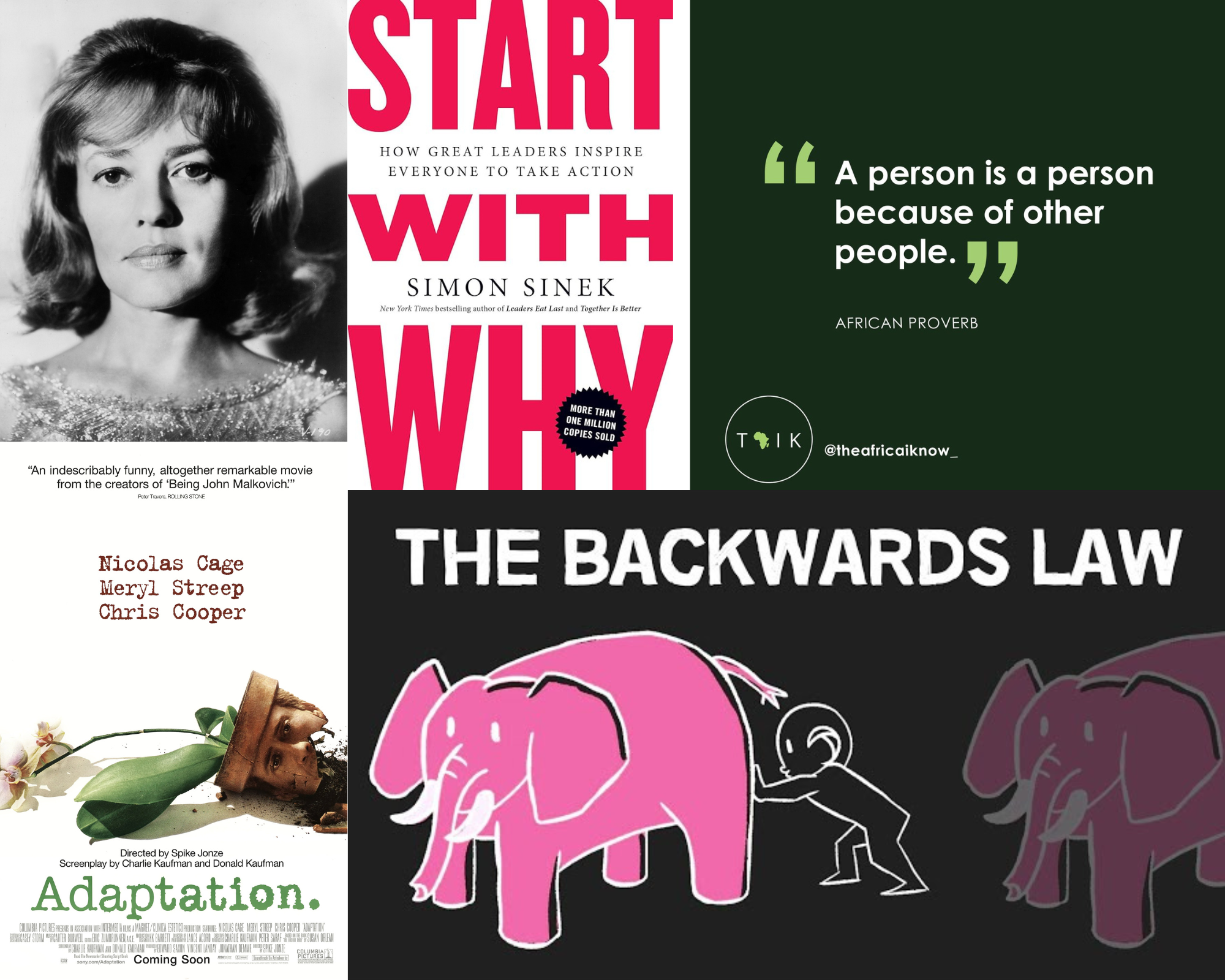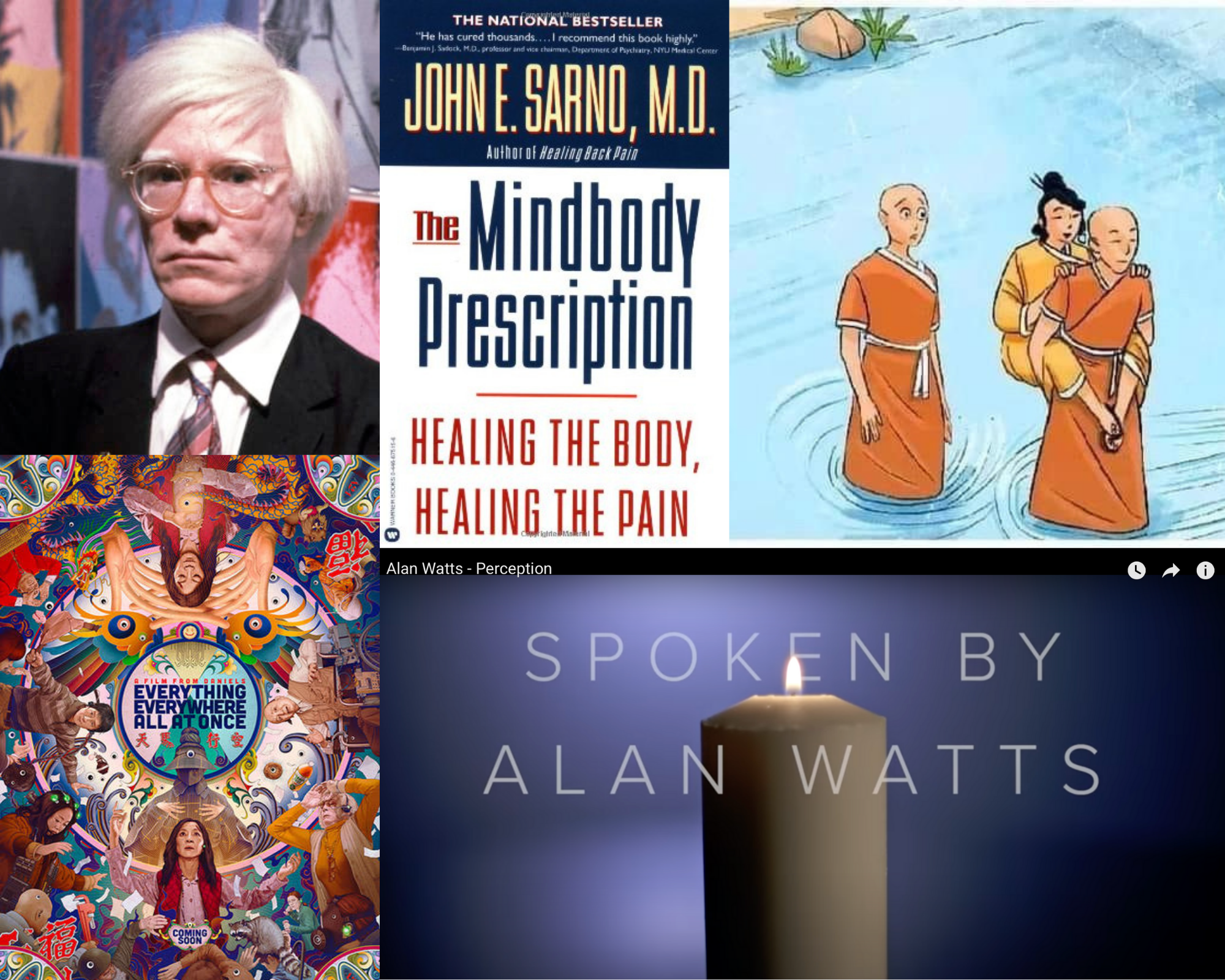Sunday Supplement #148 (March 10th, 2024)
Below is another Sunday Supplement with a quote worth sharing, a book worth reading, a movie worth watching, brainfood worth consuming, and a spiritual passage worth pondering.
Please take something away from these recommendations that enriches your week ahead!
Quote of the Week:
“Life is an accomplishment and each moment has a meaning and you must use it.”
– Jeanne Moreau
Book of the Week:
Start With Why – Simon Sinek
I’ve featured Simon Sinek in many previous Sunday Supplement posts, but mainly as a Brainfood of the Week post.
This is the first time I’ve posted about his books. I only read the book a few weeks ago, but it’s easily one of my favorite nonfiction books.
In Start With Why, Sinek breaks down different historical people and companies and how they created a lasting impact.
Sinek’s examination of how so many companies fail to act from a place that resonates with the people they want to attract is profound.
I cannot recommend this book more highly because it gives an excellent insight on where we should operate from as people and through industry.
Movie of the Week:
Charlie Kaufman is known for his bizarre and existential movies, such as Eternal Sunshine of the Spotless Mind and Being John Malkovich.
Kaufman’s screenplay Adaptation is my favorite movie of his. It is excellently directed by Spike Jonze and has a brilliant cast that includes Nicolas Cage, Meryl Streep, Chris Cooper, Brian Cox, Tilda Swinton, Ron Livingston, and Maggie Gyllenhaal.
Adaptation tells the story of a screenwriter who suffers from writer’s block as he struggles to adapt Susan Orlean’s nonfiction book The Orchid Thief.
If you haven’t seen any of Kaufman’s work, a forewarning: his stories are bizarre. The humor and satire about the Hollywood industry in this movie are fantastic.
Kaufman’s movies are hard to summarize, but if you like quirky movies, give this one a try. The final act is an interesting meta-critique of Blockbuster films. Let me know what you think.
Brainfood of the Week:
Stop Trying to Get It And You’ll Have It | The Backwards Law | Einzelgänger
This video discusses Alan Watts’ Backwards Law. It also discusses other philosophers, such as Arthur Schopenhauer and writers, like Mark Manson, in relation to the law.
The Backwards Law states the more we pursue something, the more we achieve the opposite of what we truly want and the more disappointed we feel.
Einzelgänger states the difference between external pursuits and internal desires. Wanting to run marathons and working toward it is a good thing, whereas setting a goal as a benchmark for happiness is a trap.
The video explores how the theory works in practice, not just in concept, and there are many gems from this video worth picking up.
I’ve featured Einzelgänger’s channel in previous Sunday Supplements. If you’ve enjoyed this video, check out the other posts or his channel on YouTube.
Closing Spiritual Passage:
“A person is a person because of other people.”
– African Proverb
This African proverb, which Desmond Tutu has quoted, refers to the word/philosophy of Ubuntu: “I am because we are.”
For me, this proverb reminds me how important community and our own actions are to the shaping of lives.
So many things can impact our lives, but people are probably the most impactful on other people’s lives. Whether these are people in our lives, the people we see on television, or the people we read about in books, they can influence our perceptions.
I think it’s essential to filter other people’s influences on us to ensure we’re allowing the best to get through. Knowing that our actions and others can have significant effects is also important.
Make sure you see the meaning in your life, and have a blessed week ahead!
Comments closed

